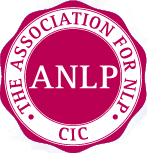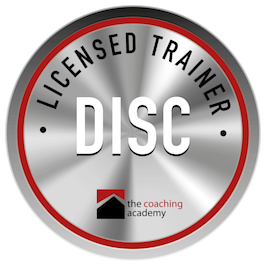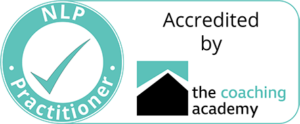In today’s modern busy life and constantly multitasking. It’s easy to lose awareness of the present
moment as you become lost in your efforts to juggle work, home, finances, and other conflicting
demands. You often fail to notice the good things about your life. You fail to hear what your body’s
telling you, or you become critical of yourself. This is where mindfulness can help.
Human minds are easily distracted, looking at past events and trying to work out what will
happen in the future. Becoming more aware of your thoughts, feelings and sensations may not
sound like an obviously helpful thing to do. However, learning to do this in a way that suspends
judgment and self-criticism can have an incredibly positive impact on your life.
Mindfulness is a way of seeing things clearly and paying attention to whatever is happening around
you. It won’t get rid of life’s pressures, but it can help you respond to them in a calmer manner
that benefits your head, your heart and your body. It helps you recognise and step away from

Mindfulness provides you with a scientifically researched approach to cultivating clarity, insights and
understanding. “Mindfulness is paying attention on purpose, in the present moment, non-
judgmentally to the unfolding of experience moment by moment.”
People have preconceived ideas about mindfulness.
What Mindfulness is NOT:
- A positive thinking technique. Nor is it a relaxation technique.
- Going into a trance
- About trying to blank your mind
- A religion
Mindlessness is the opposite of mindfulness. This involves clumsiness and accidents
because of carelessness.
Mindlessness is:
- Getting so focused on goals that you lose touch with what you’re doing right now.
- About being preoccupied with the future or the past.
- Having periods of time where you have difficulty remembering the details of what happened.
So effectively, mindlessness is running on autopilot.
Mindlessness is about daydreaming or thinking about other things whilst doing something
important, and mindlessness is allowing yourself to get distracted. If you do some, or even most of
these things at times, then you’re probably a normal member of the human race!
At work, you perform and thrive in environments that move and change at an increasingly fast pace.
To become more adaptable and flexible in this environment, you need to move beyond familiar or
habitual ways of seeing the world and open new ways of listening, working with others, responding
and innovating.
Studies of mindfulness in the work context have shown that increases in mindfulness are associated
with increased creativity and decreased burnout, laying the foundation for better decision-making,
improve communication and leadership skills.
Mindfulness helps individuals to recognise slow down or stop automatic and habitual reactions. It helps you to cope better, respond more effectively to complex or challenging situations and develop positive
strategies for dealing with workplace stress and pressure.

What is mindful leadership about?
- It is all about authenticity, being authentic to yourself through self-awareness. Authenticity
- involves being true to your beliefs, your values, and your principles.
- It involves being more effective in understanding, empathising, and relating to others, motivating them towards shared goals.
- Reducing stress, anxiety, and conflict, and improving communication in the workplace.
Mindfulness encourages you to optimise and balance your physical, emotional, intellectual, and
spiritual energy.
The Four Types of energy are inextricably linked, and they feed off one another.
(i) Your physical energy gives you the greatest quantity. It enables alertness and vitality. It
improves your ability to concentrate, manage emotions, and think clearly and creatively. It
maintains your focus, and it enhances your resilience. Your physical energy is fuelled by
nutrition, hydration, sleep, exercise, and daily energy cycles.
(ii) Your emotional energy is of the highest quality. Emotional energy enables emotional connection
and engagement with others. This is helped by rewarding relationships, patience, self-
confidence, self-control, empathy, trust, relaxation, and enthusiasm.
(iii) Your mental energy gives you the clearest focus. Within your mental energy, it gives you the
ability to focus, to organise and to be creative. It enables flexibility in the realistic search for
solutions. Mental energy is fuelled by preparation, visualisation, positive thinking,
effective time management, creativity, and relaxation.
(iv) Spiritual energy is vitally important. This gives the greatest force. Spiritual energy provides
you with a source of motivation and provides direction. It encourages perseverance. It fuels
commitment, belief, authenticity, and a sense of personal alignment. Spiritual energy is fuelled by your character, your connection to purpose and values, your passion, commitment, your integrity, your honesty and the balance of service to others with self-care.
Cultivating attention and awareness through mindfulness provides an easy way for you to live all
aspects of your life with a greater sense of skill, connection, openness and balance.
I leave you with some tips for developing mindfulness.
- Be consciously present in the moment.
- Be aware of what’s going on around you at any one particular moment in time.
- Recognise that stress is an everyday component of life. It’s important. It will give you the drive to do good work.
- Work on a single task. Slow down to speed up.
- You need stress to function normally. Respond wisely and appropriately rather than adding to a difficulty by employing your usual, unhelpful habits.
- Show gratitude and appreciation. Develop humility – be humble. Accept your limitations.
- Appreciate others – appreciate other people. Rediscover a sense of childlike wonder. So, in terms of managing with mindfulness, deal with one thing at a time, accept the power of stress, and practice gratitude.
- Practice mindfulness whenever and wherever you can.










